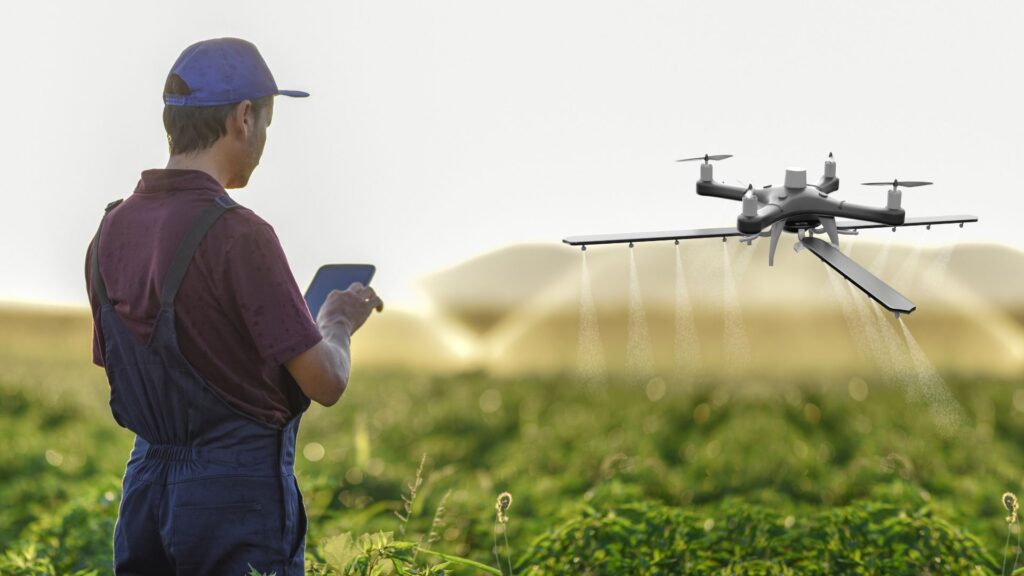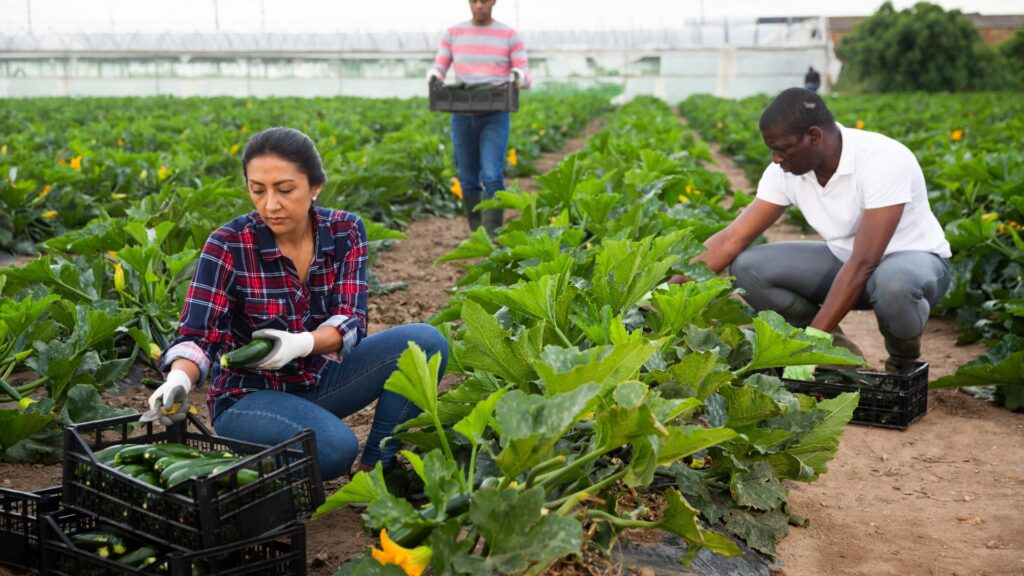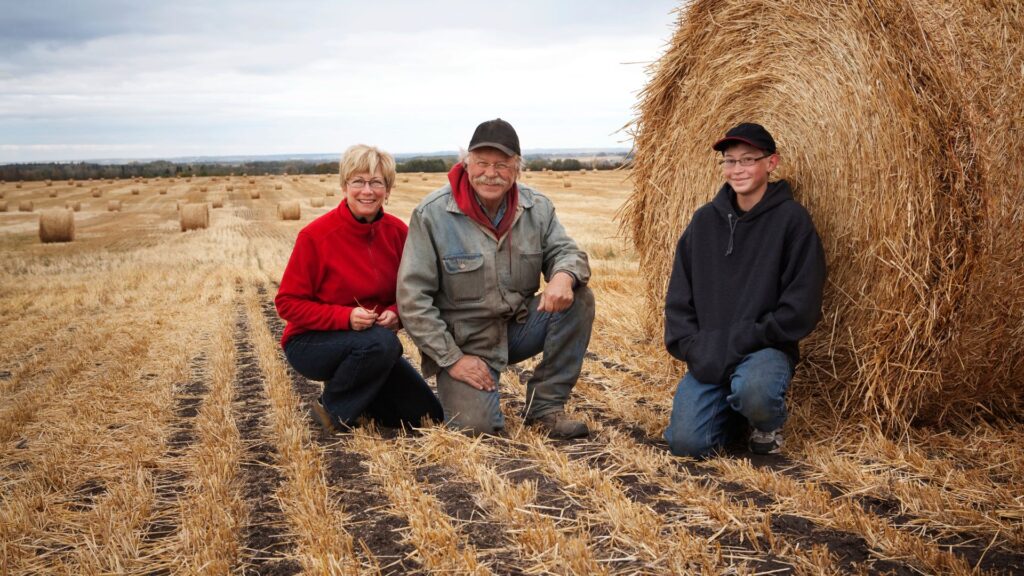
A plentiful harvest is the result of navigating the complicated environment of modern agriculture, which is itself constantly changing. From soil composition to climatic conditions, pest management to market fluctuations, the multitude of factors that influence a farm’s success can be overwhelming. Enter the farm consultant, an invaluable ally whose expertise navigates these complexities, turning obstacles into opportunities for growth and prosperity.
- Navigating the Complexities of Modern Farming
- Leveraging Expertise to Boost Yields and Profitability
- The Farm Consultant's Versatile Toolkit
- Precision Agriculture: Harnessing Technology for Efficiency
- Beyond the Fields: Planning for Profitability
- Sustainable Farming Practices for Long-Term Success
- The Human Element: Fostering Farm Worker Success
- From Local to Global: Expanding Horizons
- The Consultant's Role in Evolving Agriculture
- Success Stories: Farms That Thrived with Consulting
- Choosing the Right Farm Consultant for Your Operation
- FAQ's
Navigating the Complexities of Modern Farming

Contemporary farming is a symphony of science, technology, and strategic decision-making. Maximizing yields and profitability requires a deep understanding of agronomy, environmental dynamics, and market trends. Farm consultants possess a broad spectrum of knowledge, enabling them to guide producers through the intricate web of considerations that shape the success of an agricultural operation.
Leveraging Expertise to Boost Yields and Profitability
With their extensive training and hands-on experience, farm consultants bring a wealth of knowledge to the table. From interpreting soil analysis reports to recommending crop rotation strategies, their insights are invaluable in optimizing yields and maximizing returns. By leveraging their expertise, producers can make informed decisions that not only boost productivity but also enhance long-term sustainability and profitability.
The Farm Consultant’s Versatile Toolkit
Soil Analysis: Unlocking the Secrets Beneath
The foundation of a thriving farm lies in the intricate makeup of its soil. Farm consultants employ advanced soil analysis techniques to unveil the hidden potential and limitations of the land. They may determine the best growing conditions for abundant harvests by analyzing nutrient levels, pH balance, and microbial activity in the soil. Based on this information, they can suggest specific amendments and cultivation strategies for each area.
Crop Selection and Rotation Strategies
Choosing the right crops and implementing effective rotation practices are crucial for maintaining soil health, minimizing pest pressures, and ensuring long-term productivity. Farm consultants possess a deep understanding of crop compatibilities, regional climate patterns, and market demands. Their guidance in selecting the most suitable crops and implementing strategic rotation schedules can help producers maximize yields while preserving the delicate balance of the ecosystem.
Integrated Pest Management for a Sustainable Future
Pests and pathogens pose a constant threat to crop yields and quality. Farm consultants champion integrated pest management (IPM) strategies, combining cultural, biological, and judicious chemical control methods. By promoting a holistic approach, they help producers minimize the environmental impact while safeguarding crop health and ensuring a sustainable future for the farm.
Precision Agriculture: Harnessing Technology for Efficiency

Remote Sensing and Aerial Imaging
The advent of precision agriculture has revolutionized the way farms are managed. Farm consultants are at the forefront of leveraging cutting-edge technologies, such as remote sensing and aerial imaging, to gain a bird’s-eye view of field conditions. They may improve efficiency and cut down on waste by examining high-resolution images and data to spot problem areas, track crop development, and allocate resources wisely.
Variable Rate Application: Customizing Inputs for Optimal Results
Traditional uniform application methods often result in over-application or under-application of inputs, leading to inefficiencies and potential environmental concerns. Farm consultants harness the power of variable rate application technology, tailoring the distribution of fertilizers, pesticides, and other inputs to the specific needs of each section of the field. This targeted approach not only optimizes resource utilization but also contributes to improved yields and reduced environmental impact.
Yield Mapping: Visualizing Performance and Potential
Yield mapping is a powerful tool in the farm consultant’s arsenal, enabling them to analyze and visualize the spatial variability of crop performance across fields. By identifying high-yielding and low-yielding areas, consultants can pinpoint the underlying factors influencing productivity and develop targeted strategies to address these disparities, ultimately maximizing the farm’s potential.
Beyond the Fields: Planning for Profitability
Market Analysis and Crop Planning
While agronomic practices are crucial, farm consultants also play a vital role in strategic planning for profitability. They conduct thorough market analyses, evaluating demand trends, pricing patterns, and potential opportunities. Armed with this information, they guide producers in crop selection and acreage allocation decisions, ensuring a balanced and profitable crop mix that aligns with market demands.
Risk Management and Financial Strategizing
Agriculture is inherently a high-risk endeavor, subject to the whims of nature, market volatility, and regulatory changes. Farm consultants assist producers in implementing risk management strategies, such as diversification, crop insurance, and hedging tools, to mitigate potential losses and safeguard financial stability. They also provide invaluable insights into financial planning, cost-benefit analyses, and resource allocation strategies, enabling producers to make informed decisions that optimize profitability.
Navigating the Regulatory Landscape
The agricultural sector is governed by a complex web of regulations and policies, spanning environmental protection, food safety, labor laws, and trade agreements. Farm consultants stay abreast of these ever-evolving regulations, ensuring their clients remain compliant while advocating for policies that support sustainable and profitable farming practices.
Sustainable Farming Practices for Long-Term Success
Conservation Tillage and Soil Health
Preserving the health and vitality of the soil is paramount for long-term sustainability and productivity. Farm consultants champion conservation tillage practices, such as no-till or minimal tillage, which reduce soil erosion, conserve moisture, and promote beneficial soil microbial activity. By adopting these techniques, producers can maintain fertile soils, improve water retention, and reduce their carbon footprint, contributing to a more sustainable agricultural ecosystem.
Water Management and Irrigation Optimization
Water is a precious and finite resource, and its efficient management is crucial for both economic and environmental sustainability. Farm consultants work closely with producers to implement water-saving irrigation strategies, such as drip irrigation, moisture sensors, and precision irrigation scheduling. By optimizing water usage, producers can reduce their operational costs while minimizing their environmental impact and preserving this vital resource for future generations.
Embracing Regenerative Agriculture Principles
Regenerative agriculture is a holistic approach that focuses on rebuilding soil health, enhancing biodiversity, and creating a resilient and self-sustaining agricultural system. Farm consultants are at the forefront of promoting regenerative practices, such as cover cropping, permaculture, and agroforestry. By embracing these principles, producers can not only improve their long-term profitability but also contribute to mitigating climate change and restoring the delicate balance of the ecosystem.
The Human Element: Fostering Farm Worker Success

Training and Skill Development
While technology and scientific advancements are integral to modern farming, the human element remains crucial. Farm consultants recognize the importance of a skilled and knowledgeable workforce and prioritize training and skill development programs. By equipping farm workers with the latest techniques and best practices, consultants ensure that the farm’s most valuable asset – its human capital – is well-prepared to tackle the challenges of the industry.
Optimizing Workflows and Processes
Efficient workflows and streamlined processes are essential for maximizing productivity and minimizing waste on the farm. Farm consultants bring a fresh perspective, analyzing existing operations and identifying areas for improvement. They collaborate with producers to implement lean management principles, optimize equipment utilization, and refine tasks for smoother and more efficient processes, ultimately enhancing overall productivity and profitability.
Creating a Culture of Continuous Improvement
In the dynamic and ever-changing agricultural landscape, complacency can be detrimental. Farm consultants foster a culture of continuous improvement, encouraging producers and farm workers to embrace a growth mindset. By promoting ongoing education, adopting new technologies, and constantly seeking better methods, consultants ensure that the farm remains adaptive and resilient, capable of thriving in an increasingly competitive and evolving industry.
From Local to Global: Expanding Horizons
Connecting with Supply Chains and Markets
While local markets provide valuable opportunities, farm consultants also guide producers in navigating the intricate web of global supply chains and markets. They assist in establishing relationships with buyers, processors, and distributors, ensuring that the farm’s products reach the right markets at the right time. By leveraging their expertise in logistics, regulatory compliance, and market trends, consultants help producers maximize their reach and profitability.
Exploring Niche Opportunities and Value-Added Products
In an increasingly competitive marketplace, diversification and value-added products can provide a significant competitive edge. Farm consultants stay attuned to emerging consumer trends and niche opportunities, guiding producers in exploring alternative crops, organic production, and value-added processing options. By thinking beyond traditional commodities, producers can tap into new revenue streams and differentiate themselves in the market, securing a stronger foothold in an ever-evolving agricultural landscape.
Building a Resilient and Adaptable Operation
Resilience and adaptability are key to long-term success in the agricultural sector. Farm consultants work closely with producers to develop contingency plans, implement risk mitigation strategies, and foster a culture of flexibility. By embracing diversification, exploring alternative revenue streams, and remaining open to innovation, producers can build a robust and resilient operation capable of weathering market fluctuations, climatic challenges, and regulatory shifts.
The Consultant’s Role in Evolving Agriculture
Staying Ahead of Trends and Innovations
Agriculture is a constantly evolving field, driven by advances in science, technology, and shifting consumer preferences. Farm consultants remain vigilant, continually expanding their knowledge and staying ahead of emerging trends and innovations. From cutting-edge precision farming technologies to groundbreaking plant breeding techniques, they ensure their clients are poised to capitalize on the latest developments, maintaining a competitive edge in an ever-changing industry.
Collaborative Problem-Solving for Complex Challenges
The agricultural sector is no stranger to complex challenges, whether it’s combating emerging pests, adapting to climate change, or navigating volatile market conditions. Farm consultants thrive on tackling these intricate issues, leveraging their multidisciplinary expertise and collaborative approach. By fostering open communication and working closely with producers, researchers, and industry stakeholders, they develop holistic solutions that address the multifaceted nature of these challenges.
Advocating for Farmer Interests and Policy Changes
Farm consultants serve as advocates for their clients, championing policies and regulations that support sustainable and profitable farming practices. They actively engage with policymakers, industry associations, and community stakeholders, offering their insights and expertise to shape regulatory frameworks that prioritize the interests of producers. Consultants have a pivotal role in determining the course of agriculture’s future by amplifying farmers’ voices.
Success Stories: Farms That Thrived with Consulting
Case Studies and Real-World Examples
The impact of farm consultants is best exemplified through real-world success stories. From family-owned operations that have thrived for generations to large-scale commercial enterprises, consultants have played a pivotal role in driving profitability and sustainability. Through detailed case studies and examples, the tangible benefits of partnering with a knowledgeable consultant become evident, showcasing the transformative power of their guidance.
Quantifying the Return on Investment While the value of a farm consultant’s expertise is undeniable, quantifying the return on investment (ROI) adds a compelling dimension. By analyzing key performance indicators such as yield increases, input cost reductions, and revenue growth, consultants can demonstrate the direct financial impact of their recommendations. These metrics provide producers with a clear understanding of the economic benefits, solidifying the case for investing in professional consulting services.
Testimonials from Satisfied Clients
Perhaps the most powerful endorsement of a farm consultant’s services comes from the producers themselves. Through testimonials and first-hand accounts, satisfied clients share their experiences, highlighting the invaluable guidance, personalized solutions, and measurable results achieved with the help of a trusted consultant. These real-life stories resonate deeply, inspiring confidence in the transformative potential of professional consulting services.
Choosing the Right Farm Consultant for Your Operation

Evaluating Expertise and Experience
Choosing the correct partner is essential for realizing the benefits of using one of the many available farm consultants. Producers should carefully evaluate a consultant’s expertise and experience, ensuring their qualifications align with the specific needs and challenges of their operation. Factors such as academic credentials, industry certifications, and hands-on experience in relevant agricultural sectors should be carefully considered.
Assessing Communication and Collaboration Skills
A fruitful consultant-producer relationship relies on open lines of communication and close teamwork. The capacity to listen attentively, provide precise suggestions, and encourage teamwork are all skills that producers should look for in a consultant. It is priceless to have a consultant on board who not only comprehends the operation’s specific requirements but also has the ability to transform technical data into practical plans.
Building a Lasting Partnership for Success
Ultimately, the relationship between a farm consultant and a producer should be viewed as a long-term partnership. By investing time and effort in finding the right consultant, and fostering open communication and trust, producers can establish a lasting alliance that evolves with their operation’s needs. This enduring partnership not only ensures continued success but also lays the foundation for a sustainable and prosperous future in the ever-changing agricultural landscape.
FAQ’s
What exactly does a farm consultant do?
Farm consultants are agricultural experts who offer a wide range of services to help farmers improve their operations. They analyze soil, recommend suitable crops and rotations, advise on pest management, and help implement precision agriculture technology. They also assist with financial planning, market analysis, regulatory compliance, and sustainable practices.
How can a farm consultant help me increase my profits?
Farm consultants help increase profits by optimizing various aspects of your farm. They can identify ways to improve crop yields, reduce input costs through precision agriculture, help you plan for market demand, and implement strategies to minimize risks.
Is hiring a farm consultant worth the investment?
Yes, hiring a farm consultant is often a worthwhile investment. Their expertise can lead to significant improvements in productivity, efficiency, and profitability. While there’s a cost associated with their services, the potential gains they bring can far outweigh the initial expense.
What kind of farms can benefit from a farm consultant’s services?
All types of farms can benefit from a farm consultant, from small family-run operations to large commercial farms. Whether you’re focused on traditional farming methods or want to explore sustainable or regenerative agriculture, a consultant can tailor their advice to your specific needs and goals.
How do I find the right farm consultant for my operation?
Start by researching consultants in your area who specialize in the type of agriculture you practice. Look for certifications, experience, and a good reputation. Interview potential consultants to assess their communication style, expertise, and whether they understand your farm’s unique challenges and goals.
